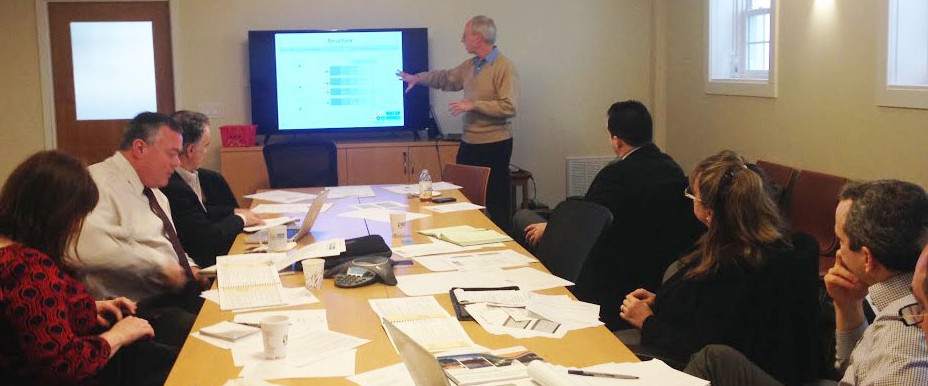Jersey Water Works, the cross-sector collaborative formed to address the problems of New Jersey’s aging urban water infrastructure, today released its workplan for 2016.
Among the 2016 workplan’s key items are:
- Facilitating the inclusion of best practices in water infrastructure management into municipal sustainability efforts, in order to minimize flooding and water loss and maximize return on financial investments;
- Working with the state Department of Transportation and local transportation departments to support design and construction of “green streets” — streets that include features to allow stormwater to infiltrate into the ground rather than run off into storm drains;
- Cataloguing water-related financial assistance programs for low-income households (similar to LIHEAP for utility costs) used in other states;
- Working to secure the support of municipal officials for water management best practices, usually by encouraging the signing of a proclamation of adoption of a resolution;
- Developing model public participation guidelines and materials to ensure that all voices in a community are included in local decisions about water-infrastructure investments.
Andy Kricun, executive director and chief engineer at the Camden County Municipal Utilities Authority, praised the workplan. “This represents important first steps toward the goal of providing every combined-sewer community with sewer infrastructure that not only complies with new state regulations but also offers improved environmental outcomes, additional community benefits and significant cost savings for municipal ratepayers,” he said.
“Having been at the center of financing so many of the state’s water-quality improvement projects, the New Jersey Environmental Infrastructure Trust has years of experience and knowledge to offer through the Jersey Water Works collaborative,” said David Zimmer, executive director of the trust. “The trust is excited about sharing its knowledge to help communities and utilities manage their water infrastructure assets efficiently, and to offer innovative, low-cost funding opportunities for participating communities.”
A Critical Problem
The urgency of the water-infrastructure problem in New Jersey’s older cities and towns cannot be overstated. Many water systems are aging and poorly maintained, and in some areas are more than 100 years old, with pipes that leak or break and are unable to prevent localized flooding after rainstorms. In addition, public health threats are acute in some of these communities, where water service lines and fixtures leach lead into drinking water and overflow raw sewage into waterways.
Jersey Water Works’ 2016 workplan outlines the steps the collaborative’s working committees intend to take this year toward the organization’s four long-term goals for water systems throughout the state:
- Effective green and gray infrastructure to support all residents and a thriving, growing economy;
- Smart combined-sewer overflow plans to reduce overflows into area waterways, roadways, parks and basements;
- Financially sustainable water infrastructure systems, with leaks and infiltration minimized and assets and operations optimized;
- Empowered stakeholders, who understand the importance of smart water infrastructure and can advocate actively for the most cost-effective and beneficial investments and solutions.
A Collaborative Approach
More than 100 members of various committees are actively advancing workplan items. Progress on the 2016 workplan includes five proposals submitted for new Sustainable Jersey actions; two meetings of the newly established network of combined-sewer system permittees; and appearances at key public events such as the NJ Spotlight roundtable on water infrastructure on April 1, 2016, and the WNYC public forum on water safety in Newark on April 25, 2016. Committees’ work is supported by almost 200 supporting members, and almost 2,000 network members have signed up to receive regular updates on the collaborative’s work.
At its summer meeting in July, the collaborative will put in place a preliminary measurement system to track progress against both its annual workplan and its long-term goals.
“The Jersey Water Works collaborative has set itself the loftiest of goals — to ensure that the state’s cities and towns have the 21st-century water infrastructure they need to thrive,” said Dan Van Abs, associate professor of practice for water, society and the environment at Rutgers University’s School of Environmental and Biological Sciences and a member of Jersey Water Works’ Steering Committee. “This year’s workplan is a set of clearly defined action items that will help make significant progress toward those goals.”
“Jersey Water Works has already shown itself to be an indispensable broker across many different sectors that are focused on this problem,” said Meishka Mitchell, vice president of neighborhood initiatives at Cooper’s Ferry Partnership in Camden. “Just this week I was on a call with regulatory staff, sewer utility representatives, and an environmental not-for-profit, discussing effective public-outreach guidelines. That conversation wouldn’t have happened without Jersey Water Works.”
“The Jersey Water Works initiative is a powerful collaboration,” said Chris Daggett, president and chief executive officer of the Geraldine R. Dodge Foundation and co-chairman of the Jersey Water Works Finance Committee. “Its approach brings together a disparate group of key stakeholders, each of whom is trying to solve water infrastructure problems from a different perspective, whether governmental, private or nonprofit, and at a different scale, from neighborhood all the way up to federal. By aligning all these entities to advance shared goals, it will be able to accomplish so much more than any member organization could accomplish individually — a great example of the whole being much greater than the sum of the parts.”
About Jersey Water Works
Jersey Water Works is a collaborative effort of many diverse organizations and individuals who embrace the common purpose of transforming New Jersey’s inadequate water infrastructure by investing in sustainable, cost-effective solutions that provide communities with clean water and waterways; healthier, safer neighborhoods; local jobs; flood and climate resilience; and economic growth.
